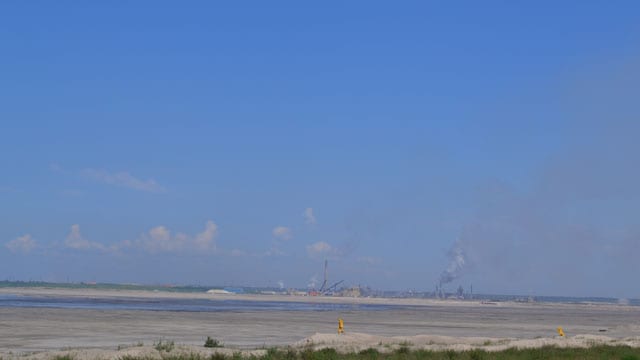
Alberta’s highest court has overturned regulatory approvals for a $440-million tar sands mine that would have encroached on land that Fort McKay First Nation considers sacred.
In a strongly worded judgment, three justices of the Alberta Court of Appeal ruled that the Alberta Energy Regulator violated the honour of the Crown when it approved the mine even though the development infringed on an agreement between the province and Fort McKay.
“The honour of the Crown … does require that the Crown keep promises made during negotiations designed to protect treaty rights,” wrote Justice Sheila Greckol.
“It certainly demands more than allowing the Crown to placate (the band) while its treaty rights careen into obliteration. That is not honourable. And it is not reconciliation.”
The dispute arose over an area known as Moose Lake.
The band says it is the last place its members can go to practise treaty rights and live in a traditional manner. Fort McKay, north of Fort McMurray, is surrounded on three sides by tar sands development and 70 per cent of the band’s traditional territory is taken up by mines.
In 2001, the band began talks with the province to preserve Moose Lake and a 10-kilometre buffer zone around it. Former Alberta premier Jim Prentice signed a letter of intent with the band in 2015 and three years later Fort McKay thought it had a deal, although it was never ratified.
But that year, the Alberta Energy Regulator approved Prosper Petroleum’s 10,000-barrel-a-day mine that would have come within two kilometres of the lakeshore.
It argued before the Appeal Court that its mandate forbids it from considering issues of Indigenous consultation. Nor could it consider deals not yet in force.
Not good enough, said the court.
“The public interest mandate can and should encompass considerations of the effect of a project on Aboriginal Peoples,” wrote Justices Barbara Veldhuis and Jo’Anne Strekaf. “To preclude such considerations entirely takes an unreasonably narrow view of what comprises the public interest.”
Greckol added the regulator was also wrong to say that cumulative effects of development are beyond its purview.
“The Crown has long been on notice that the piecemeal approach to addressing (the band’s) concerns through consultation on individual projects has not adequately considered the cumulative effects of development.”
In a statement, Prosper CEO Brad Gardiner said the ruling reflects problems with Alberta’s energy regulation.
“This decision reflects a failure of the regulatory framework for the energy industry and a failure of the Crown to address the concerns of Fort McKay First Nation. These issues need to be addressed by the government.”
The court has instructed the regulator to reconsider the project.











-it’s a SAGD site, not an open mine.
-it’s 3km from NAMUR lake (aka: Buffalo Lake), not 2km from Moose lake
-it’s 17km from Gardiner Lake (aka: Moose Lake)
-it’s 67km from the Fort Mckay town site.
How could they have hiked through 67km of native forest, muskeg, and watercourse crossings; kill a moose, and carry it back 67km to their families?